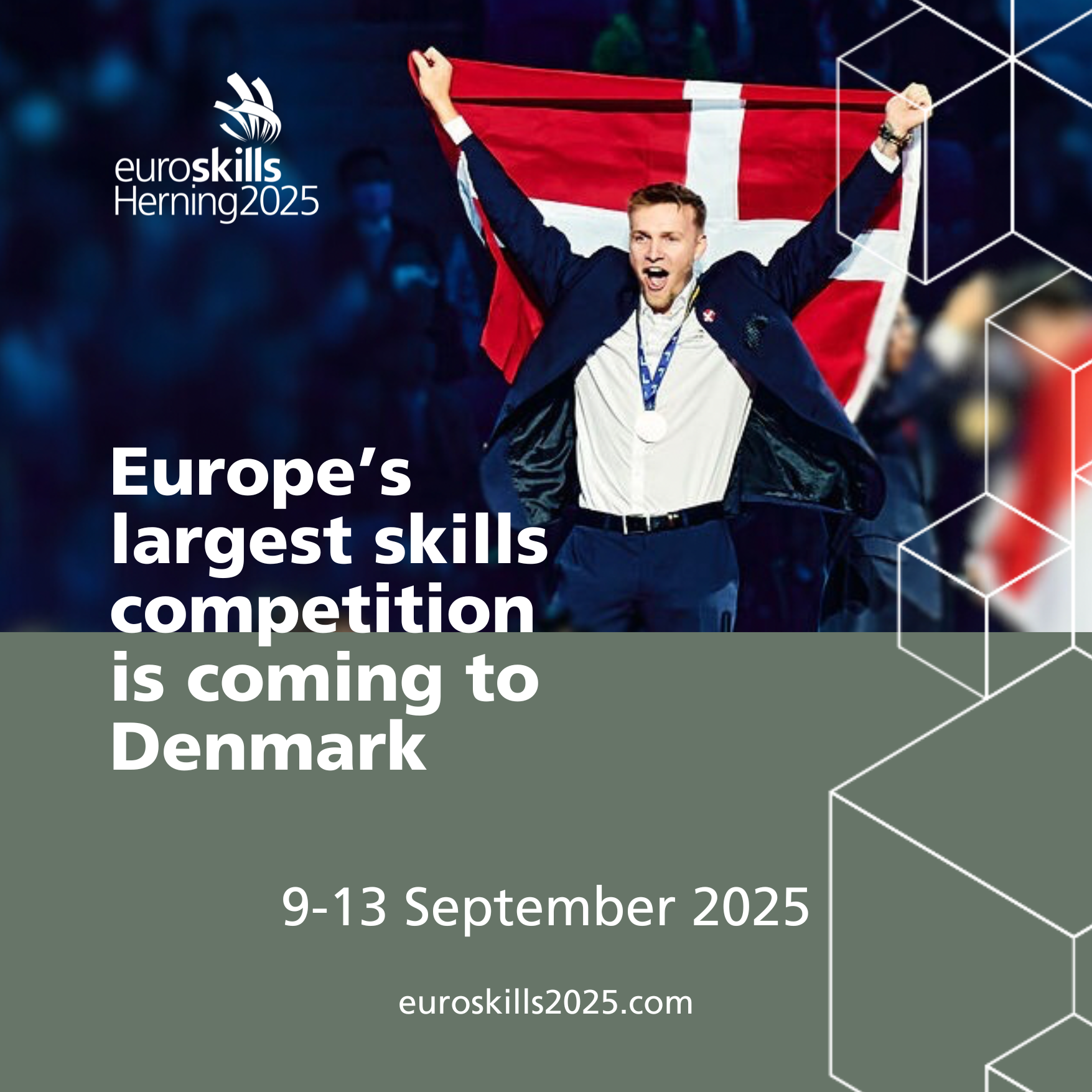EuroSkills Herning 2025
The ninth EuroSkills Competition was hosted by Denmark in the city of Herning in 2025. EuroSkills Herning 2025 took place from 9-13 September 2025 at MCH Messecenter Herning.

EuroSkills Herning 2025
EuroSkills Herning 2025 brought together almost 600 young professionals from 32 countries, who participated in 38 skill competitions for the chance to become the Best in Europe in their chosen areas of expertise.
As well as presenting a world-class Competition that celebrated the most talented young professionals in Europe, Denmark sought to maximise opportunity of hosting EuroSkills Herning 2025 to increase the national focus on the development of technical and vocational education and training. The event showcased how skills competitions and international skills benchmarking represent a significant opportunity to help drive up standards of excellence among young professionals and students, which supports industry, economic, and productivity growth.
Skilled for a greener future
EuroSkills Herning 2025 emphasised how skills can help us all rise to the global challenge of creating a sustainable future for our planet. Skilled professionals are central to the successful implementation of green technologies; from technicians in renewable energy to experts in sustainable construction, trained professionals are key in the global environmental transformation.
The theme of sustainability was at the heart of the event’s identity, underlining the ambition that the Competition aimed to equip the young skilled workers of the future with the skills necessary to carry out the green transition.
Organisers
EuroSkills Herning 2025 was organised in partnership with Denmark’s Ministry of Children and Education, Herning Municipality, the Central Jutland Region, the Danish Employers' Association, the Trade Union Movement's Main Organisation, SkillsDenmark, and WorldSkills Europe.
The city of Herning is home to a thriving industrial sector, with a large international workforce focusing on a shift towards Industry 4.0. This is a result of a long-standing tradition of close cooperation between local industry and businesses, educational institutions, elementary schools, and the municipality.